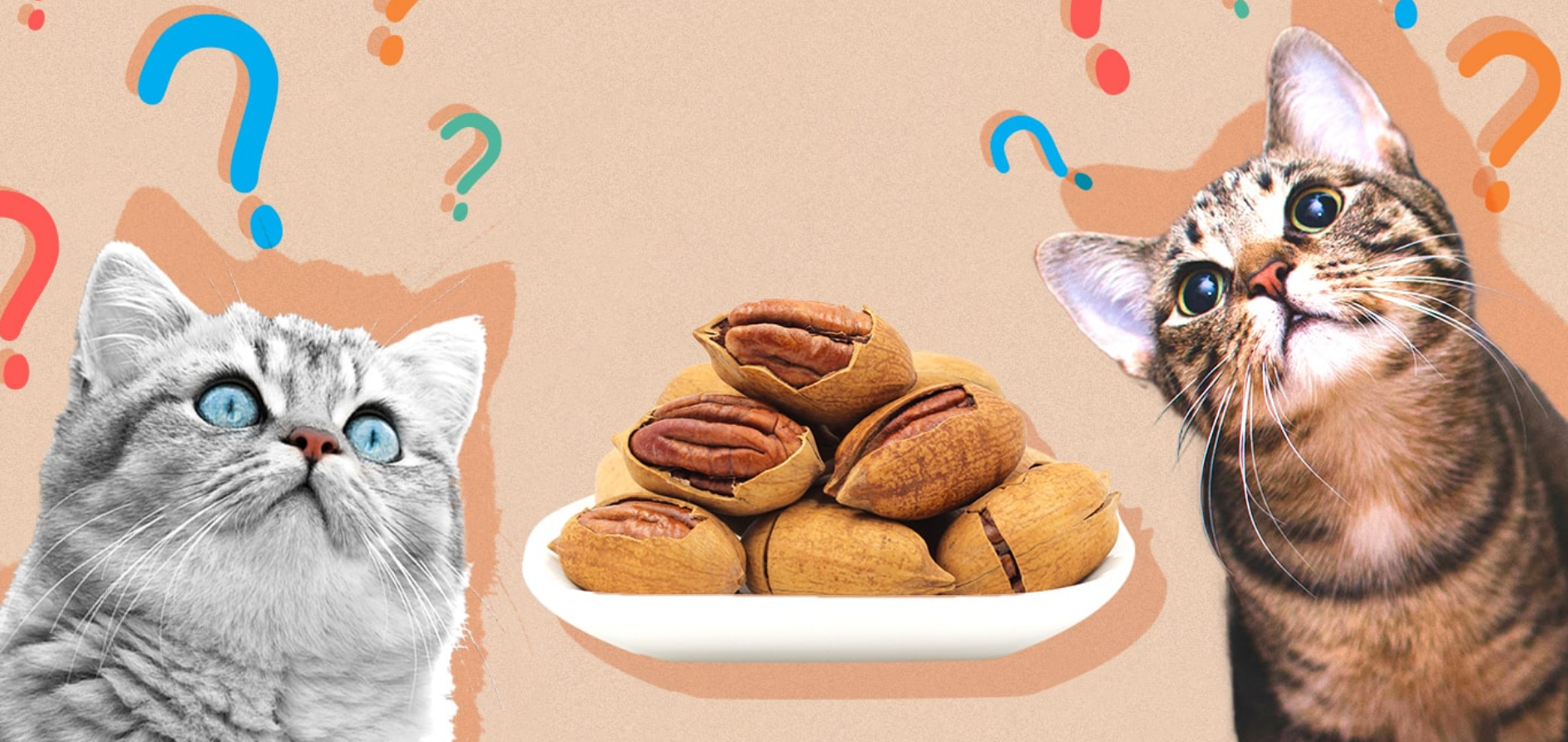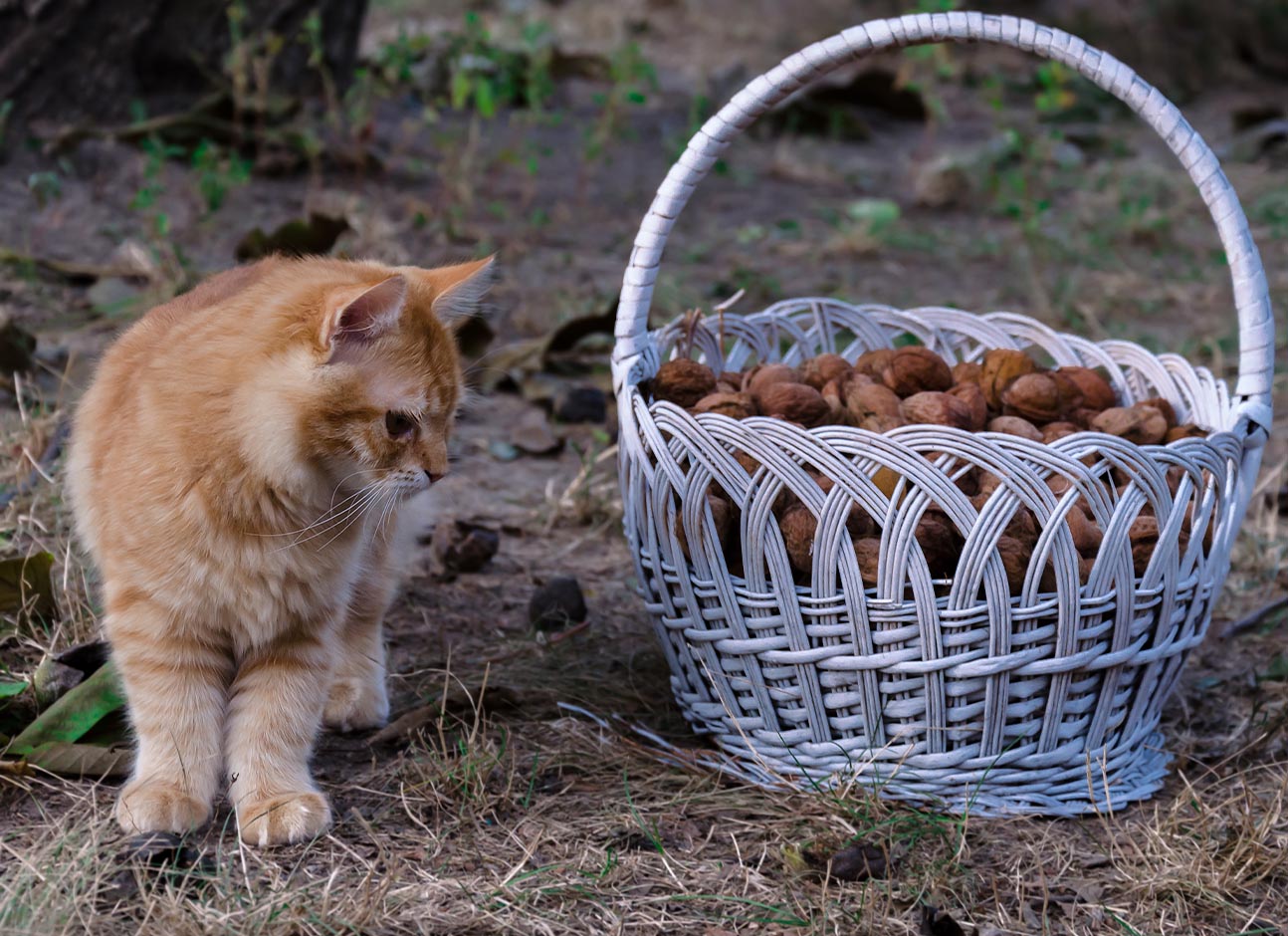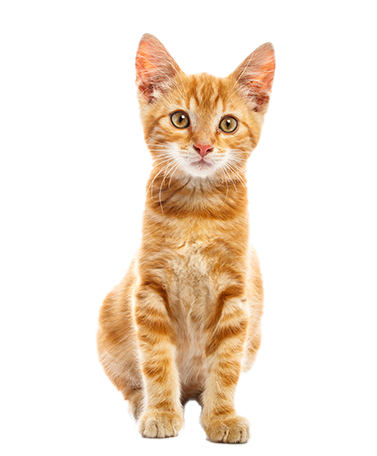Reviewed by Dr. Luciano de Gatica
Updated on 07/21/2024
Reading time 6 min.
Overview
Severity: Low
Life stage: All
Cats are known for their love of food, but can they eat pecans? The answer is yes, but not all cats will enjoy them. You should know some things before your kitty starts chowing down on pecans.

Cats and pecans
Can Cats Eat Pecans?
Yes, cats can eat pecans. They are not a great source of nutrition, however. Cats are carnivores, so their diet consists primarily of meat and other animal products. While it’s okay for your pet to enjoy a few nuts here or there, they should not be considered part of its diet because they’re high in fat and calories.
Cats are also sensitive to many foods that humans consider safe for consumption—for example, peanuts and almonds contain toxic oils called phytates that can cause an immune response in cats if eaten in large quantities over time. Both peanuts and pecans belong to the same family as cashews; however, they contain no phosphorus (vitamin B2), potassium or copper, which helps maintain proper body functions such as metabolism rate etcetera.
Are Pecans Bad for Cats?
A common misconception is that all nuts are bad for cats. Some of them are perfectly fine to eat! Peanuts are a legume (a type of bean) and should not be fed to cats.
Peanut allergies in cats can be severe enough to cause anaphylaxis if eaten in large quantities, so it’s essential to avoid giving your kitty any peanuts if you’re concerned about their health or safety – says Dr. Luciano de Gatica
Are Cats Allergic to Pecans?
While it’s not common, cats can be allergic to pecans. This is especially true if your cat has a history of allergies or skin problems, such as eczema or atopic dermatitis. Pecans contain a substance called cyanogenic glycosides (CNAs), which are toxic to dogs and cats when ingested in large quantities. CNAs cause gastric irritation, other gastrointestinal issues, and liver damage in dogs and cats with severe acute cases of poisoning; however, these symptoms rarely occur when small amounts of CNAs are consumed over time by pets previously exposed to them through diet or medications.
| The symptoms of poisoning CNAs | Frequency |
|---|---|
| Gastric irritation | Common |
| Other gastrointestinal issues | Common |
| Liver damage | Less common |
What Happens If Cats Eat Pecans?
Cats can eat pecans, but they’re not the best option for a cat-friendly snack. Pecans are high in fat and calories, so your cat may become overweight if you give them too many of these treats. Also, pecans can cause an upset stomach or diarrhea in cats because of the amount of protein found in them—which is why it’s best to avoid giving your feline friend a serving of pecan nuts at once!
If you do decide to feed your kitty some delicious pecan treats, be sure that you measure out each one before letting him enjoy it (or her).
Is Pecan Pie Safe for Cats?
Pecan pie is safe for cats, but you should be careful. Cats love pecan pie and will eat just about anything given to them by their humans.
Pecans are not nuts—they’re part of the rose family (like apples and cherries) and can be used as a natural remedy for many health issues in dogs and cats!
Can Cats Eat Roasted Pecans?
Yes, cats can eat roasted pecans. They’re safe to give your cat, and they taste delicious! Remember that you should never feed raw nuts or seeds to your pet, as these may cause an allergic reaction in cats. If you do want to try giving roasted pecans as treats for your feline friend, make sure you don’t overdo it: one handful per day is plenty!
Conclusion
Cats are fascinating and wonderful, but they can also be finicky in their diets. That said, humans have been eating pecans for centuries, so it’s not surprising that cats might want some too. If you’re worried about your cat eating pecans, keep her away from them until she gets over her fear of them!
Meal planning for your pet made easy. Discover the benefits of our Food Delivery service today!

Share this, choose your platform!
Writen by
Dr. Luciano de Gatica
DVM
Luciano de Gatica graduated in 2005, as a Doctor of Veterinary Medicine, from Universidad Nacional de La Plata (UNLP) in Argentina. He gained extensive experience in the field of…

